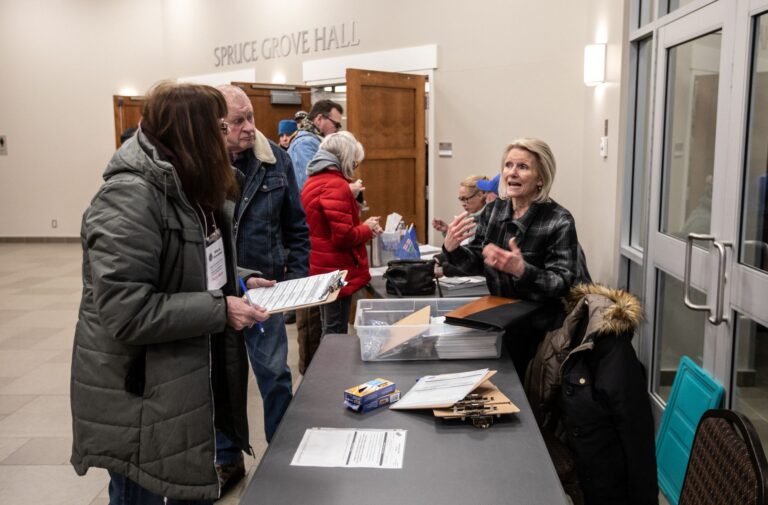Influencers on social media who dabble in politics have not earned a stellar reputation.
Last year, the U.S. Department of Justice indicted two Russians for allegedly pumping cash into a small media startup founded by two Canadians, which hired previously established social media influencers to amplify Russian propaganda. In April, Romania made the unprecedented move of cancelling its presidential election amid suspicious online activity, including alleged secret payments to social media influencers.
Meanwhile, we’ve seen repeated examples of influencers involved in spreading misinformation and disinformation, being paid to evade election spending laws or doing both.
While some influencers present themselves as a way to get informed, seemingly with a goal of providing high-quality information that is relevant to their particular audiences, others aim to push a political point of view, entertain or simply drive engagement, with little focus on ensuring the information they share is accurate, relevant or contextualized responsibly.
Fight disinformation to strengthen our democracy
Trust should be a two-way street between governments and the public
Regardless, most influencers can shape narratives, drive conversations and foster communities – communities that can help build engagement and political efficacy, as well as foster trusting relationships. In an era where the public has less trust in politicians, journalists and political institutions, most influencers could become a trusted source for political information.
With appropriate transparency and accountability measures, as well as updated media and digital literacy strategies that recognize the varied roles influencers can play, political influencers could help drive increased trust in political systems.
Influencers’ influence continues to grow
In the summer of 2024, 200 influencers were issued press credentials for the Democratic National Convention. Last fall, the Pew Research Centre released a report detailing how it identified some 2,000 “news influencers” – social media content creators with more than 100,000 followers who regularly discuss civic and political issues.
A recent study from the Canadian Digital Media Research Network looks at the role of political influencers in Canada’s political information ecosystem. That study doesn’t even consider lifestyle influencers and others who are not necessarily intentionally political in terms of their branding, but who nonetheless are engaging in political conversations from time to time.
Trust in institutions declining
All of this is particularly relevant when trust in the news media and political institutions, as well as individual journalists and politicians, is in decline in Canada and other Western democracies. Social media influencers are well-positioned to fill this gap for many of the same reasons campaigns and other political actors like to work with content creators.
First, social media influencers are able to use the unique relationships they develop with their audiences, not to mention the detailed and nuanced understanding they have of their audience because of all the data they collect. They can use this to tailor messages and connect in a way that resonates deeply with their audiences.
Second, they can leverage their deep knowledge of the platforms on which they create content to communicate more convincingly and more effectively. Influencers know how to work within the confines of prioritization and deprioritization algorithms, as well as how to create content that garners engagement.
Third, influencers don’t only know their audiences well. Their audiences believe they know the influencer well, something called a parasocial relationship. This sense of connection, proximity and intimacy can make influencers even more influential because there is the potential for social pressure, social support and group dynamics to amplify the effects of particular messages and lead people toward changed behaviour, attitudes and opinions.
All of this makes influencers particularly effective at reaching niche audiences, in part because of the reinforcing nature of the influencer industry. To be successful, an influencer often needs to create a specific brand persona, which in turn builds community and establishes audience expectations.
Especially for those who have developed a fan base and community who are less engaged in and/or less trusting of politicians, journalists and institutions, influencers could become a trusted source for political information.
This could be hugely beneficial in a democracy, which requires the engagement of its citizens. Influencers build trusting relationships with people who are most often left out or pushed out of political discourse, communicating with them in ways that effectively reach them and resonate with them and their lived experiences.
Lacking transparency and accountability
But today, we don’t have the transparency and accountability mechanisms that democracy needs. For example, when political information starts to flow through particular niche communities online, it is difficult to identify where misinformation or disinformation is circulating and difficult to correct. When influencers have been paid to share certain political ideas but there is no traceable record, election laws cannot be upheld.
When we think about the powerful role that the mainstream news media had for decades, we can see they were held to account because their practices fell under the watchful eye of the public.
While one might disagree with what a particular media outlet might say, it’s at least said in the light of day, allowing for accountability mechanisms. Similarly, news media can be a watchdog for political actors, holding them to account for what they say and do.
But when it comes to what social media influencers are saying, this becomes a lot more difficult.
For example, within the context of election laws, influencers have generally been understood as advertisers – although their roles are significantly more pervasive – with regulations taking the form of spending restrictions and transparency requirements.
New approaches needed
But there are limited ways of ensuring that influencers aren’t evading spending limits or transparency mechanisms. Consider online ad libraries. While all political advertising on a given platform should be included in them by law, they can easily be skipped by influencers being compensated off platform. Non-monetary compensation can make advertising relationships even more difficult to trace.
These are some of the tactics that have earned influencers that bad rap.
However, there’s real potential for social media influencers to be a force for good within our political information systems, helping audiences to adjust as the power dynamics in our information environment shift, thus helping to strengthen our democracies and rebuild trust.
But before this can happen, there is a need for transparency and accountability in an information ecosystem where it’s difficult to know who’s saying what to whom, whether it’s been paid for, and whose interests it is serving.
This article is part of a series on political leadership and trust. Click here to read more.













